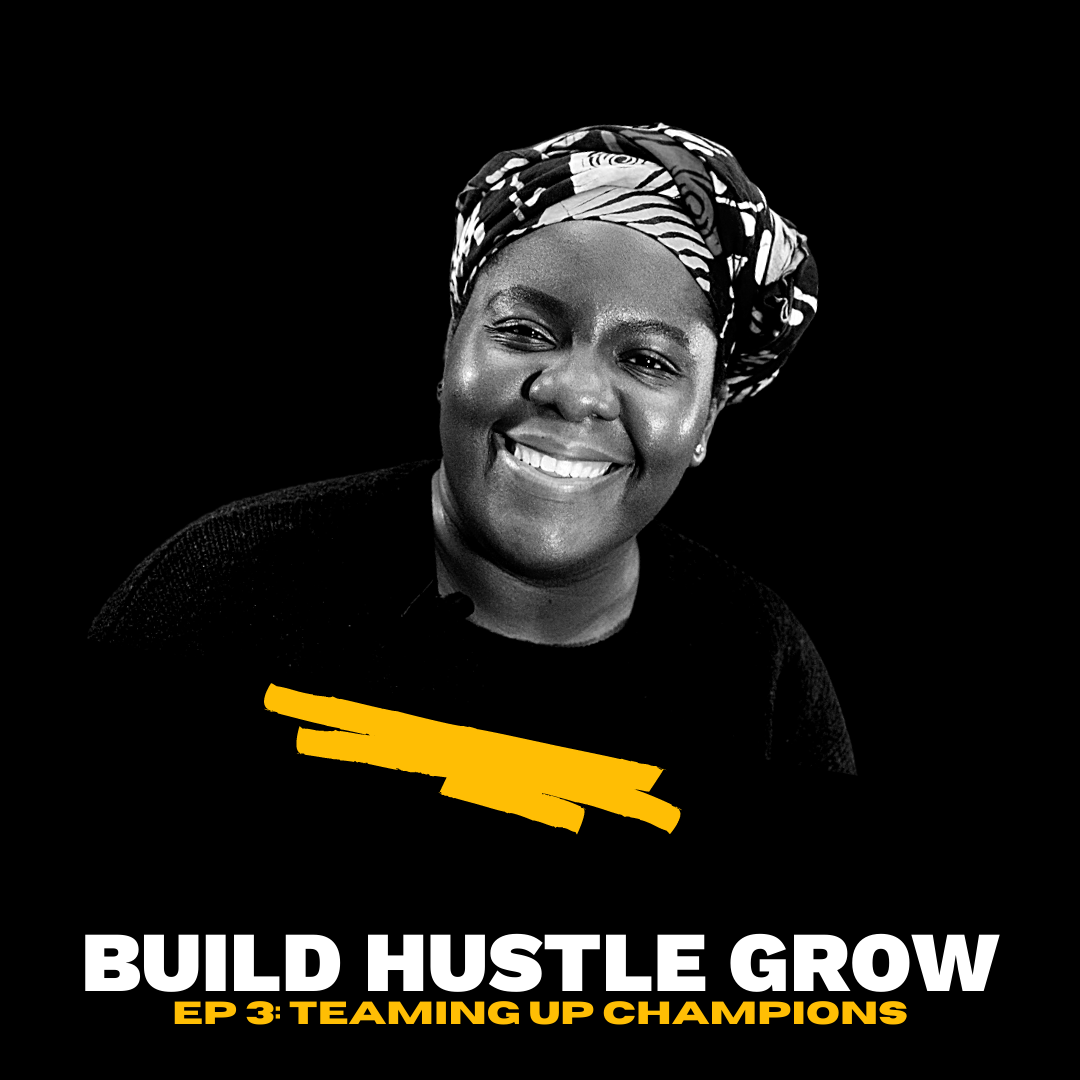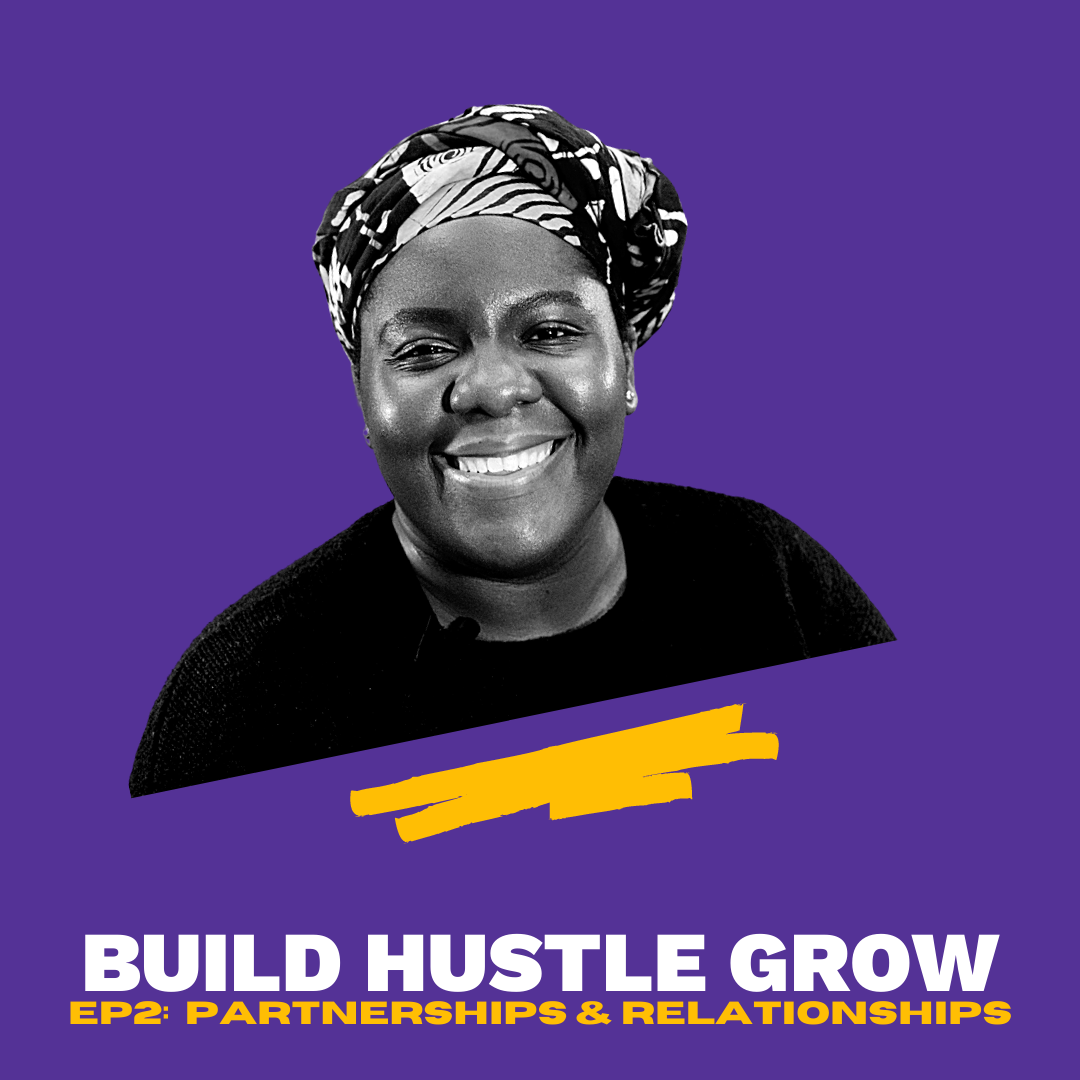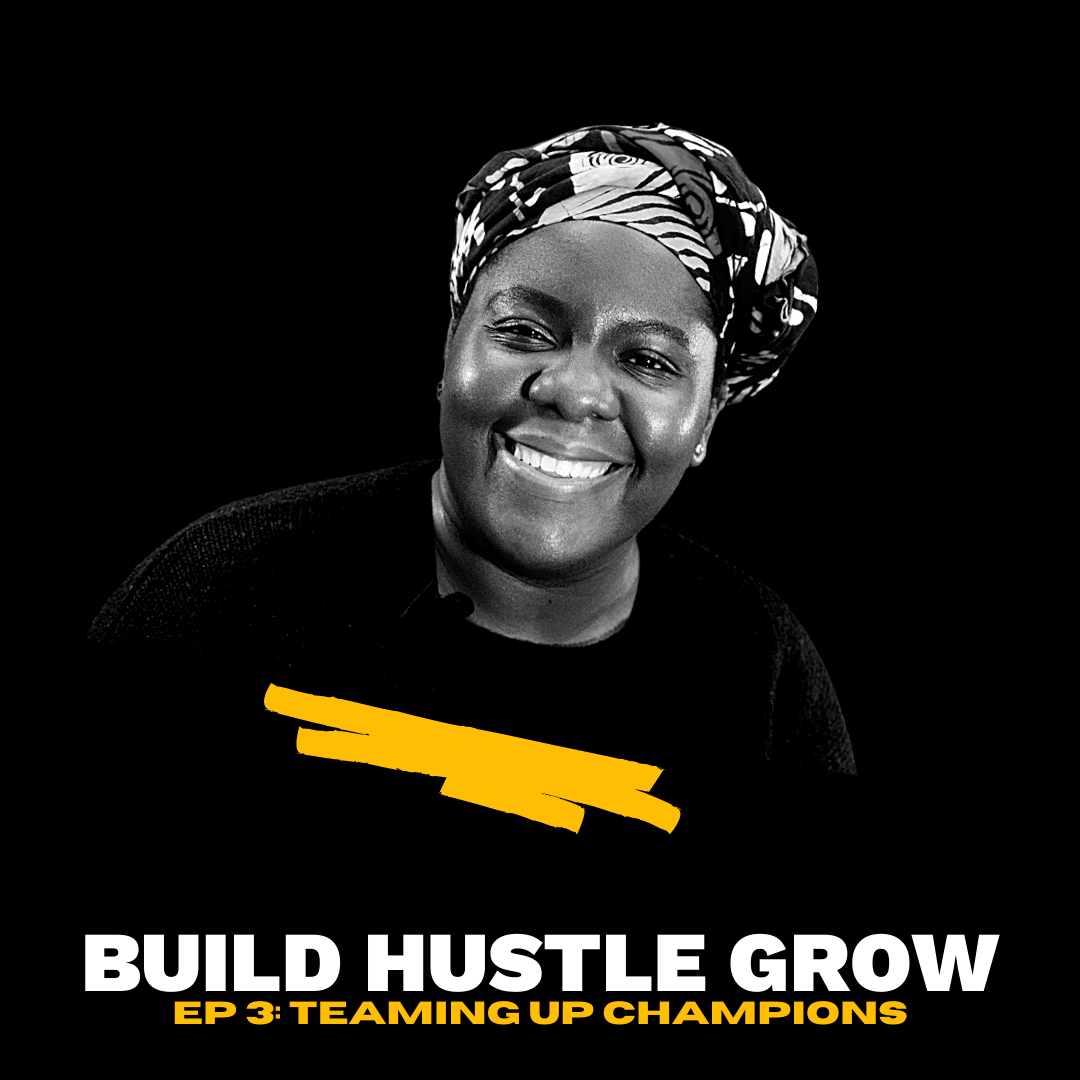One of the greatest failures I ever had in my business journey was my inability to retain one of my best friends as a member of my team.
You know, when you first start your business and you’re excited about building it and you get your friends involved? Well, my story was that kind of situation. When I first launched Do it Now Now, I was extremely scared of failing and even more so of failing publicly. That feeling of fear was affecting my ability to lead, and when I started to feel that fear rising in me, I responded by turning that energy into a desire to control things - which meant that I was a chronic micro-manager. It all came to a head when my best friend and I were invited to take part in an investor campfire event. There were 20 startups chosen and each startup got the opportunity to spend 30 minutes talking to an investor; there were 14 investors in total. The point of the event was that they would show you all the gaps in your business and then send you on your way to fix them. Well, after 14 heavy conversations in which we both sat and pitched Do it Now Now over and over again, we ended the evening inspired, energised and ready to tackle all the problems that the investors pointed out. The problem started when we separated and I was home alone, pacing up and down in my apartment, completely overtaken with that fear of failure and entirely overwhelmed by how much work I had to do to make the vision for Do it Now Now come to life. I went a bit loopy. I called my friend and turned everything into a task for her to complete and for me to manage. It is one of the most horrible things I have ever done as a leader. I fully screwed up! Three days later, I called her and said, ‘forget everything I asked you to do, I’m sorry I made everything your responsibility. I’ll think of a better way to handle this’...But the damage had already been done, as this wasn’t the first time I had gone off on a massive micro-managing bender of really believing we needed to do 101 things, only to change my mind about all of them a few days later. That’s how the most patient person I have ever met in my entire life quit on me. She had finally had enough of my micro-managing and my ever-growing list of demands. Thankfully, she handled the entire situation kindly and helped me until I had a handle on making things work without her. I’m extremely grateful that she remains one of my best friends and chose to understand that my behaviour was a manifestation of my fear of making the wrong decision, rather than seeing it as an indictment of our friendship. The situation taught me a lot about myself and my leadership style. It sent me on a journey of self- reflection which ensured I could be the best leader possible for my organisation. While there have been a few more learning curves since then, leadership wise, none were as steep as that one. Today, we’re talking about teaming up champions. Every member of your team should be able to champion you in external spaces as an advocate. Every member of your team should be a champion in their field of expertise and every member of your team should be able to effectively work with other champions. Building a team is so much more than gathering a bunch of people to do tasks for you. It is also about making sure you’re building a culture and an operating method that means more people are attracted to your team. The three questions I’m covering are:
Why do I need a team vs freelancers? Depending on the stage you are in your business, you may not yet be in a position where you’re able to employ people and issue employment contracts that give your company the responsibility to pay for their national insurance or any number of other things they could require as legal employees. In which case, you may be paying people and they are technically freelancers in your organisation. Otherwise, you may be entirely dependent on sweat equity. You could also have a mixed model where you have a couple of employees, a few freelancers and then some people working for free with a view that at some point you will start paying them for the work they are doing, once you can afford to. I’m going to be a little bit liberal with this question and frame it to mean, why do you need a team of people that are working with you towards a specific goal, versus having a group of freelancers that work with you from time to time? I’ve been on both sides of this experience and I can genuinely tell you that I have found having a team that includes freelancers and the awesome humans who are putting in that sweat equity for us, is the best decision I have ever made. I used to think it was better to just have a group of freelancers that I could call on when I found something I couldn’t do, but honestly, it was super lonely. Having a team around you is about having people that will stand beside you and behind you when you’re taking a beatdown in public. Having a team is about cultivating a group of people that will become your friends and work day in and day out to eventually solve the problems you all care about solving. The building part is a slog! It is a long hike up a very steep hill. Hustling and Growing? That part is fun! The hustling (the strategy) is what most people think running a business is like - the power suits and power meetings. Growth is the evidence of your hard work paying off. But 90% of the actual work is the building and when you’re building alone you’re going to get lonely. Do not underestimate the effects of loneliness on your staying power as an entrepreneur. The only reason I didn’t quit Do it Now Now in the early days, even amid really quick growth and semi-regular power move moments, was because I had the right people around me. That is the value a team brings; they are a group of people that care about you as a person just as much as they care about the mission of your business. What do I need in the perfect team? I’m glad I get to share this because I’ve been working on the perfect core team model for a while. You may have heard someone talk about the perfect team as a formation of three people performing three key roles; the Hipster, the Hacker, the Hustler. The hipster designs everything from your customer experience to your product - the visuals and the experiential stuff. The hacker does the research and the building of your tech product or your product in general. They make sure you have the best product or service out there for your ideal customers. The hustler is the one responsible for going out and selling the thing - pitching it to different people and getting it featured in all the right places so that your product or service gets the recognition it needs. I do like that model and think it works, but it was designed particularly for the tech world, which isn’t necessarily that transferable to other industries, ideas or inclusive and healthy working styles. I have been working on an alternative model and I think every team needs to DRIVE. You need a Designer, a Renegade, an Innovator, a Venturer and an Energiser. The D is for Designer. Like the hipster, you’re going to need someone to make sure everything you put out into the world meets a certain standard and goes out ready to take on the market you are in. The designer is a multifaceted role because they have to be able to interpret information and data then put that work into creating something that reflects where you want your organisation to be in the market. Tom Chi, one of the designers of Google Glass did a TED Talk on rapid prototyping that could be helpful when you’re thinking about this team position. The R is for Renegade. Do you remember that Jay-Z song, Renegade? I remember growing up it was one of the 44 songs I had on my mini disk player, including one of my other all-time favourites, Get Here by Oleta Adams. I digress. Renegades see things differently and you will need that. You need at least one person who just has that thing in them that has to question the status quo and wonder if it can be done better. It's a type of creativity that can be practised and learned over time, but some people are on another level of curiosity and have a little spark of positive rebellion that makes something good, great. The I is for Innovator. This is a tricky one because people’s ideas about what innovation means can be very different, and that malleability of the definition is imperative to this role. The innovator is the person who is constantly thinking of good ways to establish your organisation in new spaces. It's pretty generalist in terms of a skill set, but if you don’t have an innovator who is finding new use cases for your product or service, seeking new partnerships and new opportunities, you’re not going anywhere fast. The V is for Venturer. A venturer is about adventure and growth is certainly an adventure! This is the person that ensures you are delivering on your growth targets. Goal setting and more importantly, goalkeeping is so important. It ensures that you stay on track from the development to the implementation of your plans. You need someone to think through all the steps, set relevant targets and organise everything based on a timeframe that works so you can get to where you want to go in the best way possible. You can also think about it in terms of venture capital or social investment. Your venturer is the person that is ensuring you are hitting the targets that will make your organisation a valuable and worthwhile investment. The E is for Energiser. Time, pace and workload are three things that greatly affect team satisfaction within your organisation. The role of the energiser is to watch out for the energy of the team. It’s about being emotionally intelligent so you can solve problems within your team before they fester and become detrimental to the continued function of your team or organisation. You may notice that none of the roles is specifically focused on tech, sales or any specific job description. That is because, in this model of the ideal team, everyone is an all-rounder with a speciality in one specific thing. I wanted to design something that could factor in the culture and spirit that every good entrepreneurial team should have. You can hire people to do the specialist stuff, but your core team should challenge each other and help each other lead your organisation towards the fulfilment of the vision. How should the ideal team operate? The first and most important factor is that all of you are driving towards the same vision. You all have to care about the vision. Without that, you’ll find it very difficult to retain your team when things get heavy. The second thing is to make sure you all treat each other with compassion. That is a culture thing that you have to be intentional about fostering. Remember, even when people leave your organisation, they will continue to represent your organisation and the stories they tell can either harm you or help you. Be sure they can tell stories that will help you. I do everything I can to make sure my team knows exactly what is going on as soon as it makes sense to share. When anyone joins my team, they have to complete an onboarding questionnaire and we specifically ask things like: when do you prefer meetings to happen? Are you a spontaneous phone call person or a put it in my calendar person? Do you like knowing the whole plan or do you just want to know what you need to do right now? It gets people to think about what works best for them. This isn’t a perfect system because things happen and sometimes we just need to throw preferences out of the window and act with urgency, but if we spend 70% of our time working within the preferences of the individuals, we can ensure they have a good experience of working with us. Well, that’s the plan anyway. Finally, the ideal team has the proper processes in place, I mentioned our onboarding process, it’s a method to ensure that any person we bring on is ready to hit the ground running. If you don’t have the time to onboard and manage someone effectively, don’t bring them on. Before you bring anyone on, even if that person is offering to work for free, you need to factor in the amount of time it will take to train them in the way you do things and help them get acclimated into your organisation. That was a highlight reel of some of the things I have learned over the years when it comes to building a team that will champion your work. I hope it was helpful and I hope you’ll join me in the next episode when I’ll be sharing some of my hard-learned lessons in the area of hunting down new markets. The free download for this episode is How to Create the Optimum Vision.
0 Comments
The mistake I used to make was that instead of seeking out effective relationships and partnerships to build those skill and access gaps, I would redesign my work to fit what I was directly capable of.
That’s not a bad thing in all circumstances, it’s particularly not a bad thing when it comes to money management. But it can be a bad thing when it comes to growth. If you’re building based on your skills and access, you’re limiting yourself to your world and your world probably isn’t big enough to capture true growth. To cover this topic I’m going to focus on three questions:
We chose to start this season of Build Hustle Grow, with this topic because partnerships and relationships are so fundamental to growth, yet so underrated when compared to things like social media, paid ads, influencer marketing and so on. If you can find the right organisations to work with and the right people to champion you, you could achieve similar levels of success without the ad spend that comes with the more popular methods. What’s the difference between a business partnership and a business relationship? Partnerships are about working together for a fixed amount of time, or on a specific project for the mutual benefit of the individual organisations involved. Partnerships are supposed to aim at growth. You should only be entering into a partnership with an organisation if you think they will be able to give you access to a group of potential customers or clients that would be difficult for you to access otherwise. Relationships are more of a fluid concept as they often don’t have clear terms and objectives set out for them. There is that saying, ‘your network is your net worth’...Well, it’s true! The people you surround yourself with will be the people that open doors for you, so it's best to form relationships with people that have access to the opportunities you want. Why do we have to foster relationships/partnerships in business? Relationships give you more eyes and more access than you would have otherwise. Relationships with founders make the business-building journey less lonely. It's encouraging to know you’re not the only person making seemingly unjustifiable sacrifices to reach a goal that no one can promise is possible. Also, as they are not your direct competitors, you could benefit from having them as a sounding board for you when you’re in a business strategy bind. Relationships with clients make it possible to do business. Depending on the customer acquisition cycle of your business which is largely determined by the types of business you run. For example, B2C can be as short as a 10-minute journey, whereas B2B, you’re looking at 3-12 months to win a customer. Having a relationship at the company doesn’t always mean you’ll win the client over, but it does make things easier. Example, our work with a tech giant and our relationship with them significantly sped up the Customer Acquisition process as there was already implicit trust in our expertise and abilities. Forming close relationships with competitors may seem nonsensical at first, but think about it a little more practically. When you’re building a small business and you don’t have the team to support you, there are often things that you come across that may seriously affect your entire industry. For Black people, because we are a demographic group that is often so underrepresented in an industry, we need to band together with other Black people so that we can gain power and better opportunities by presenting a united front. That doesn’t happen if you’re off in a silo. I’m not saying share your secret sauce with your competitors, but I am saying it is wise to stay on friendly terms with them just in case they ever come across an opportunity they can’t take on, if you’re friendly, they’ll probably share it with you! At their core, partnerships are about co-creation and collaboration. If you’re in a partnership that wasn’t co-created and isn’t entirely dependent on collaboration then it isn’t a partnership, it is probably a case of you doing something of value for the other party, for free. Partnerships are supposed to be edifying, and mutually beneficial. What you determine to be a good enough pay-off to pass your mutually beneficial bar is entirely up to you. How do you identify the right relationships/partnerships? Actively seek out new spaces and groups. One of the things I often think is, if I am in a networking situation and I know most of the people in the room, I wasted my time. Your relationships should always be forward-looking. You should be trying to be in the company of people that have been there and done whatever it is you want to do. Those relationships will be the perfect sounding board as you get into growth and scale. There is no shame in cutting people out when the way they approach their business or their ideology becomes debilitative to your growth and achievement. There is such a thing as toxic business relationships! When it comes to partnerships, each one is a stepping stone to where you want to be. Forming resource-based partnerships is a great way to get your foot in the door and also a great way to understand the inner workings of an organisation you may not have access to otherwise. Map where you want your business to be in a year or two. For example, what clients do you want to have by then? For us it used to be the big tech companies, so we found an in-route to those companies that didn’t require them to pay us, but did require them to show us the inner working of their organisation. That way when we were ready to pitch for paid work to them or similar potential clients, we already had that experience and knowledge under our belts. I hope that in sharing some of the things I have learned over the years when it comes to forming beneficial partnerships and relationships have been helpful. Please join me in the next episode when I’ll be revealing some of my hard-learned lessons in the area of team building. The free download available for this episode is How to Avoid Business Failure.
In this interview, Lucy Arup, our Head of Content, speaks with Bayo about her motivation, inspiration and ideas about entrepreneurship.
Bayo Adelaja is the founder and CEO of Do it Now Now; which she founded in 2016 in response to gaps in the support available to Black innovators building tech companies and social enterprises in the UK and across Africa. The initiatives Bayo developed for Do it Now Now have led to awards from both Harvard University and Oxford University's Business Schools for her endeavours in creating and fostering opportunities for under-served communities through technology. In 2018, Bayo was named one of the most influential women in social entrepreneurship in the UK by Natwest bank and has worked with the Bill & Melinda Gates Foundation. In 2019, Bayo was chosen as one of the top 100 most influential BAME leaders by the Financial Times and Inclusive Boards. She was also recently the Diversity and Inclusion Consultant at Google for Startups UK and is a Fellow at Included VC, as well as the Royal Society of Arts. Prior to setting up Do it Now Now, Bayo was a Social Policy Researcher at the London School of Economics, where her work garnered press coverage, including being quoted by former prime minister David Cameron. Her initiatives have received coverage in The Metro, CNN, Huffington Post, Financial Times, The Independent, TechCabal, Ventureburn and Disrupt Africa. The free downloadable resource we have made available to you for this episode is a guide on How to Craft a Winning Mission Statement. |
AboutBuild Hustle Grow is a podcast aimed at people that are pre or post-launch and focused on building, hustling and growing their business. ArchivesCategories |
|
THIS WEBSITE IS NOW RUN THROUGH OUR DO IT NOW NOW WEBSITE. TO ENSURE YOU DON'T MISS OUT ON PROGRAMMES AND UPDATES, PLEASE VISIT THE DINN WEBSITE AND SIGNUP TO THE DINN NEWSLETTER.
Black and Good is powered by Do it Now Now
Copyright © 2024 DiNN Enterprise CIC. All rights reserved. |
Sign up to our monthly newsletter where we share opportunities and news about our community.
|




 RSS Feed
RSS Feed





